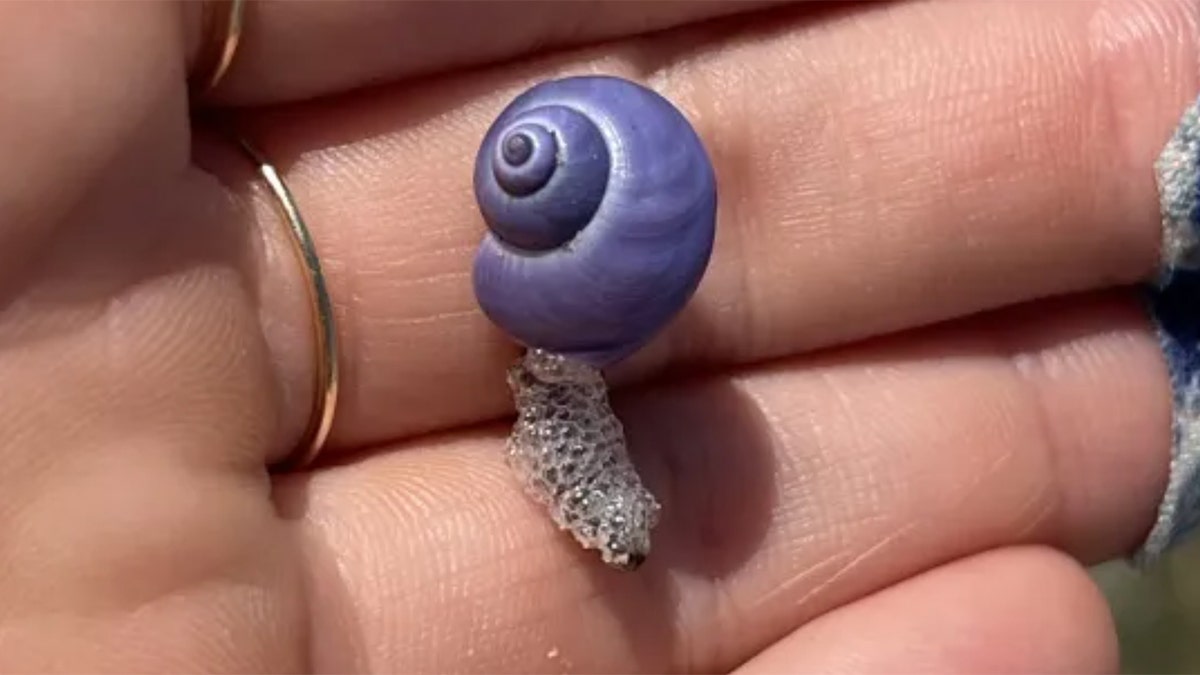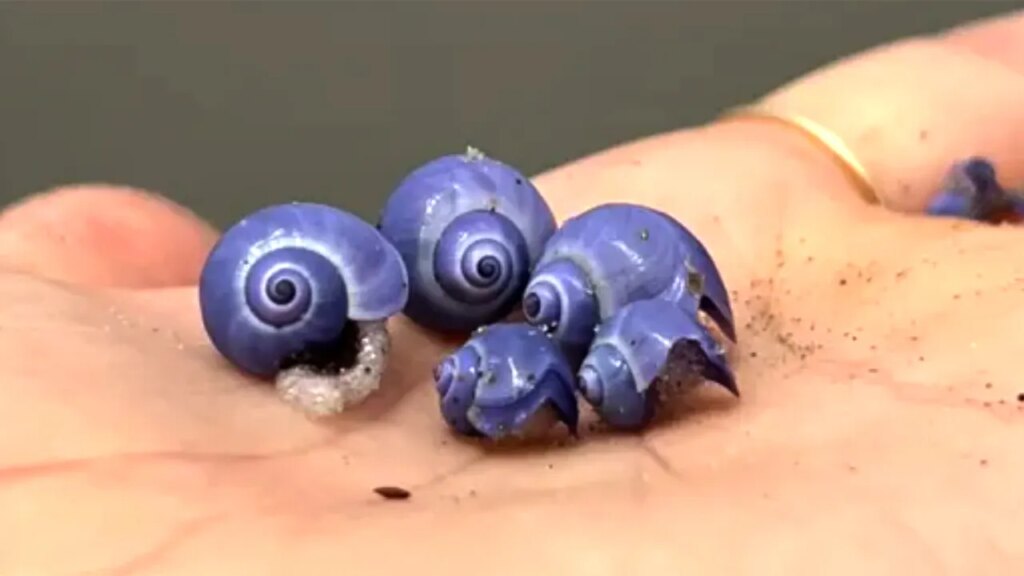NEWYou can now listen to Fox News articles!
A student was enjoying a sunset stroll on a beach in La Jolla, California, when she came across something very rare.
Anya Stajner, a Ph.D. student at UC San Diego’s Scripps Institution of Oceanography, spotted a tiny, bright purple shell — and recognized its significance.
Stajner identified the rare species of pelagic sea snail also known as Janthina.
ANCIENT ‘STICK FIGURES’ ON BEACH ONCE AGAIN VISIBLE AT TOURIST DESTINATION
A Scripps Institution of Oceanography spokesperson told Fox News Digital, “These marine snails are known for their vibrant purple shells and their ability to float at the ocean’s surface using their natural ‘bubble raft.’”
The spokesperson added, “Janthina are typically found in subtropical to tropical seas, and their stranding along the Southern California coast is often linked to warmer offshore waters flowing toward the shore.”
The snail shells have angled whorls and slightly extended apex, according to the World Register of Marine Species.
For more Lifestyle articles, visit foxnews.com/lifestyle
Janthina protect themselves with a “camouflage strategy” known as countershading.
They point their front side to the sky while floating, appearing in a darker color to blend in, according to the Texas Saltwater Fishing Magazine (TSFM).

“They’re darker on the top so that a sea bird flying above that might want to eat the Janthina couldn’t see it, and they’re a lighter purple below so that a fish looking up from below might have a harder time spotting,” said Stajner, according to FOX 5.
The snails can reach about 1.5 inches in height and, while safe to pick up, they can secrete a purple ink that can leave a stain.
La Jolla resident Brooks Whitney had never heard of Janthina, according to FOX 5.
“I’ve heard of them … I’ve seen them either on the news or social media. It is cool, but it also makes me wonder why they’re showing up,” Whitney told FOX 5.
Stajner believes the snails are washing up on shore due to a patch of warmer water offshore that’s made its way into the cove, having not been spotted on San Diego beaches since 2015.
“Which is when we had both an El Niño event and a warm blob of water that sort of combined, and it was this massive marine heat wave,” said Stajner.
Read the full article here

